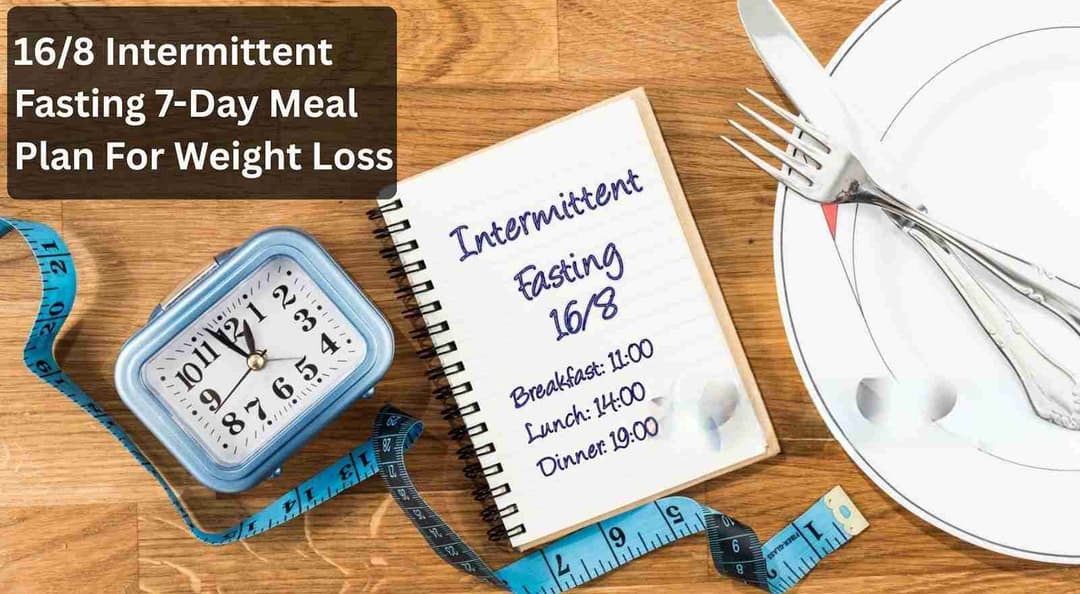Feeling tired all the time, especially if you're part of the senior community? Sleepiness in the elderly can be more than just a sign of ageing—it’s a sign worth paying attention to. Many seniors experience excessive daytime sleepiness that can interfere with daily life. But why does this happen?
There are several causes of excessive sleepiness in the elderly. It could be caused by any underlying health conditions or side effects from medication. Excessive sleep in seniors is not just about feeling drowsy after lunch; it can signal something more serious. If you're noticing unusual fatigue, memory issues, or a constant need for naps, it’s time to investigate.
In this blog, we'll examine seven key causes of sleepiness, the symptoms to watch for, and the best treatment options to help seniors reclaim their energy. Understanding these factors can greatly improve senior sleeping patterns and overall well-being. Ready to explore the reasons behind excessive sleep in seniors? Let’s get started!
Table Of Contents
- What Is Excessive Daytime Sleepiness?
- What Are The Causes Of Sudden Excessive Sleepiness In The Elderly?
- Symptoms Of Excessive Sleep In Seniors
- How To Manage Sudden Sleepiness In The Elderly?
- Expert’s Advice
- The Final Say
- FAQs
- References
Elders In Your Home Seem Sleepy And Lethargic All The Time?
Know What Is Excessive Daytime Sleepiness?
Excessive daytime sleepiness, or hypersomnia, is a condition in which a person feels very sleepy during the day despite having had enough (or more) sleep. With hypersomnia, a person falls asleep multiple times during the day. Hypersomnia affects work and social functioning, affects quality of life, and increases the risk of accidents.
Excessive daytime sleepiness is a major public health problem, with an estimated prevalence of 18% in the community.
Sleepiness happens when people don’t get enough sleep, or their sleep isn’t good quality. Around 20% of older adults say they feel very sleepy during the day. This can be a sign of a health issue, not just a normal part of getting older. Excessive daytime sleepiness in older adults might mean there are health problems like sleep apnea, memory issues, or heart problems. It can also be caused by common issues like not getting enough sleep or having poor sleeping conditions at night.
Risk factors for excessive sleepiness include overweight or obesity, depression, and older age. The two most common causes in clinical settings are obstructive sleep apnea and periodic limb movement syndrome. The increased prevalence of obstructive sleep apnea in obese people does not fully explain the increased rates of daytime sleepiness in this population, and there is evidence that metabolic factors and chronic inflammation in obese people contribute.
Sleepiness is also more common in people who report symptoms of depression or anxiety disorders and has a significant impact on quality of life. Daytime sleepiness in older adults can also be a problem if your loved one prefers to spend the day snoozing in bed or on the couch rather than interacting with the world around them. To help your seniors become more alert during the day and sleep better at night, you need to understand why they tend to sleep late.
Also Read: White Hair At An Early Age: Causes And Treatment Options
What Are The Causes Of Sudden Excessive Sleepiness In The Elderly?

Here are some common causes of excessive sleepiness in older adults:
1. Medicines
One of the most common reasons for sleepiness in the elderly is due to certain medications. As people age, their metabolism change, making older adults more vulnerable to the side effects of certain medications. Fatigue is a common side effect of many over-the-counter and prescription medications, including antidepressants, antihistamines, sleeping pills, anti-nausea medications, opioids, muscle relaxants, and alpha and beta blockers.
2. Medical Treatment Or Surgical Recovery
Medical procedures like chemotherapy or radiation can leave seniors exhausted and worn out. Older adults may also feel more tired than usual while recovering from surgery or a medical procedure. In addition to the body expending energy to heal, the patient may be given new medications after surgery that could cause side effects such as fatigue.
Also Read: The Best Exercises For Leg Pain Relief & Recovery | ToneOpFit
3. Infections
Elderly people may experience fatigue from illnesses such as influenza, pneumonia, and urinary tract infections since these conditions require more energy for the body to fight pathogens. In some cases, these problems may go undiagnosed because older adults often have vague symptoms and may not talk to their caregivers or doctors.
4. Anxiety Or Depression
Strong emotions can sometimes manifest as physical symptoms, such as sudden extreme fatigue, while feelings of depression can become more common with age. Older adults may experience loneliness, sadness or anxiety about the future, which often goes undiagnosed and can lead to fatigue.
5. Nutrient Deficiencies
Diseases caused by malnutrition can cause sleepiness in the elderly, and this often goes unnoticed. For example, low iron levels, which can occur when older adults suffer from iron deficiency anaemia, can make them feel weak and sluggish. Nutrient deficiencies can cause fatigue in people of all ages, but seniors are more at risk for nutrient deficiencies.
6. Sleep Disorders And Sleep Apnea
Sleepiness in the elderly can be brought on by sleep disorders such as insomnia, sleep apnea, and restless legs syndrome. Recurrent breathing cessations brought on by sleep apnea result in fragmented sleep and low oxygen levels. This disruption activates the body's stress response, increasing cortisol levels, which can further impair sleep quality.
Likewise, the lack of restorative deep sleep decreases the production of hormones like melatonin, essential for regulating sleep-wake cycles. As a result, seniors may experience excessive daytime sleepiness due to insufficient restorative sleep at night.
7. Dementia
Excessive sleepiness and lack of sleep are common symptoms in older adults with dementia. Fatigue can worsen dementia symptoms, so a person should seek treatment immediately as soon as they experience excessive sleepiness or lack of sleep.
Also Read: 12 Best Exercises For Brain Health To Improve Memory, Cognition And Mental Wellness
Symptoms Of Excessive Sleep In Seniors: How To Differentiate Normal Tiredness From Excessive Sleepiness?
Memory consolidation, immune system restoration, and other critical functions all benefit from sleep. Because of this, getting poor-quality sleep can cause a range of symptoms, some of which may not even be connected to sleep. If you encounter any of the following symptoms, you might be experiencing excessive sleepiness even if you don't feel sleepy:
- The problem of staying alert
- Feelings of irritation
- Memory problems
- Focusing problem
- Difficulty retaining new concepts
- Difficulty making decisions
- Slower reaction times
- Risky behaviour
- Sleeping all the time and not eating
Also Read: Best Lower Back And Hip Pain Exercises For Seniors | ToneOpFit
How To Manage Sudden Sleepiness In The Elderly?
We can manage sudden sleepiness in the elderly with the help of some medical treatments, lifestyle changes and prevention tips. We will discuss some of these in the following section:
A) Medical Treatments
Below are some possible remedies for excessive sleeping in the elderly.
- Armodafinil is a wakefulness-promoting agent that can be used to treat narcolepsy and sleep apnea.
- Benzodiazepine receptor agonists are hypnotics that can help with sleep at night.
- Melatonin is an over-the-counter dietary supplement that helps you fall asleep and wake up on time.
- Methylphenidate promotes alertness.
- Modafinil can be used to treat narcolepsy and residual sleepiness.
- Sodium oxybutyrate is used to treat narcolepsy and reduce interrupted sleep at night.
Note: These medications are mentioned purely for information purposes only. Do not take any medications without consulting with your doctor.
B) Lifestyle Changes & Prevention Tips
Consider making some lifestyle changes to help improve your sleep quality and keep you safe and avoid injuries and accidents. Excessive sleep in the elderly can be prevented by maintaining good sleep hygiene.
Additionally, consider ToneOp Fit's Diet + Yoga/Workout + Naturopathy Plan for a complete approach to wellness. This plan offers one year of personalised coaching and support for your transformation journey, including:
- 120 Live Workout/Yoga Sessions, where you will get live sessions led by inspiring instructors from the comfort of your home.
- Balanced Diet Plan For 365 Days: Enjoy five meals a day to keep you fueled and satisfied while ensuring variety.
- Dedicated Diet Coach For 1 Year: Get answers to your questions and motivation throughout your journey.
- Natural Therapies For Weight Loss with Ayurveda and herbal remedies to support your goals.
- Mind & Body Wellness: Utilise stress-busting techniques to enhance detoxification and weight management.
- DIY Herbal Massages to indulge in rejuvenating massages that promote relaxation and circulation.
By combining these practices with good sleep hygiene, you can significantly enhance your sleep quality.
Below are some ways to practise good sleep hygiene when oversleeping in the elderly. Things you can try include:
- Maintain good sleep habits. This includes things like creating a regular sleep schedule, an environment that allows for sleep, and limiting caffeine and exercise before bed.
- Go to bed at the same time every night. Make sure your bedroom is well ventilated, cool, dark, quiet and comfortable in terms of mattresses, pillows, sheets and blankets.
- Avoid caffeinated products (including coffee, cola, tea, chocolate, and various over-the-counter medications) within a few hours of bedtime. Caffeine is a stimulant.
- Avoid alcohol before bed. Although alcohol is a depressant and seems like it might help you sleep, because it is metabolised by your body, it causes you to wake up and is often associated with nightmares and sweating.
- Avoid tobacco and products containing nicotine before bed. Nicotine is a stimulant.
- Ask your sleep specialist what to avoid when it comes to foods or specific medications.
- Avoid working night shifts.
Note: It may be helpful to talk to a counsellor or find a support group to learn how to manage problems associated with excessive sleepiness. People with excessive sleepiness are often mistaken for lazy or incompetent; learning about this condition will help your relationships.
Also Read: 5 Mental Health Exercises To Boost Concentration Levels And Brain Functioning
Expert’s Advice
Treatment for excessive daytime sleepiness varies depending on the cause. However, I recommend starting with sleep hygiene tips that encourage you to get more sleep. You may also take medications to help you overcome the underlying cause and develop a general, effective management plan to help you cope with the situation more easily.
Health Expert
Lavina Chauhan
The Final Say
In conclusion, addressing sleepiness in the elderly is essential for maintaining their well-being. Understanding the causes, such as sleep disorders and lifestyle factors, can help identify effective solutions. Excessive daytime sleepiness can lead to serious consequences, including accidents and reduced quality of life.
By recognising symptoms and implementing good sleep hygiene practices, we can support better senior sleeping habits. If you or a loved one experiences persistent sleepiness, make sure you find the underlying cause after reading this blog. Taking these steps can lead to more restful nights and energised days!
FAQs
1. Why do elderly people sleep and not eat too much?
The eating capacity of seniors decreases over time. Throat infections, dizziness and other physical problems can also be the cause. Loss of appetite, often known as anorexia, and a slowed metabolism are two causes.
Below are some of the reasons that lead older people to sleep and not eat too much.
- Oral discomfort resulting from complications of dentures
- Stress, anxiety and depression
- Developing melancholy
- Adverse drug effects
- Slow metabolism
2. Can anxiety cause excessive daytime sleepiness in older adults?
Yes, anxiety can indeed cause excessive daytime sleepiness in older adults. Research shows that elevated anxiety symptoms are linked to poor sleep quality and increased sleep fragmentation, particularly in elderly populations.
References
- https://jtd.amegroups.org/article/view/568
- https://my.clevelandclinic.org/health/diseases/21591-hypersomnia
- https://www.sleepfoundation.org/aging-and-sleep
- https://wellness.go365.com/medicare/articles/excessive-sleep-in-seniors
- https://veritascare.co.uk/senior-sleeping-the-most-common-causes-of-sudden-excessive-sleepiness-in-the-elderly-and-relations-between-sleep-and-age/
- https://www.griswoldcare.com/blog/sudden-excessive-sleepiness-in-elderly-adults/
- https://pubmed.ncbi.nlm.nih.gov/28778240/
- https://www.ncbi.nlm.nih.gov/pmc/articles/PMC3142094/
About ToneOp Fit
ToneOp Fit is a platform dedicated to improving and maintaining good health through a comprehensive range of goal-oriented health plans with up to 3 Coach support. With a range of Weight Management, Medical Condition, Detox Plans, and Face Yoga Plans, the app also provides premium health trackers, recipes and health content. Get customised diet, fitness, naturopathy & yoga plans and transform yourself with ToneOp.









































